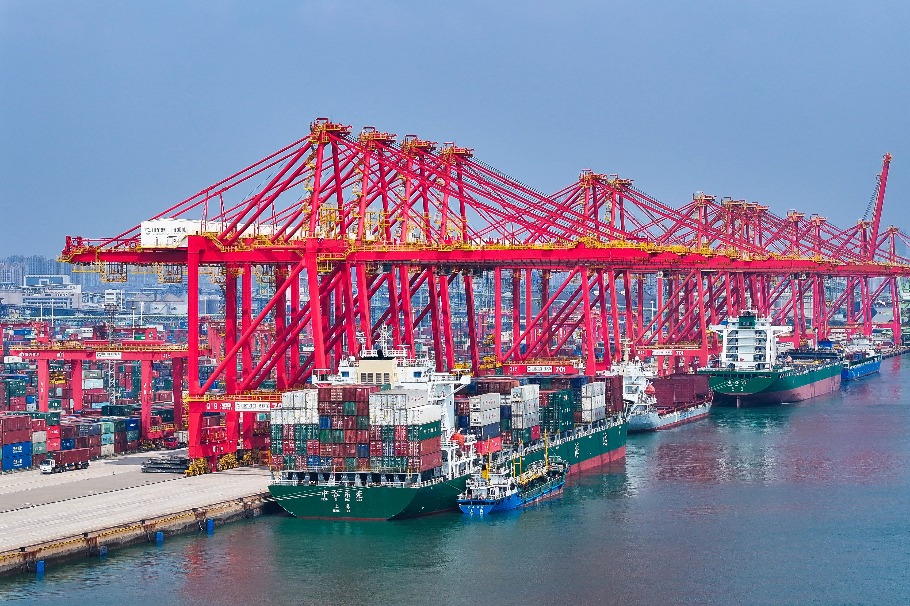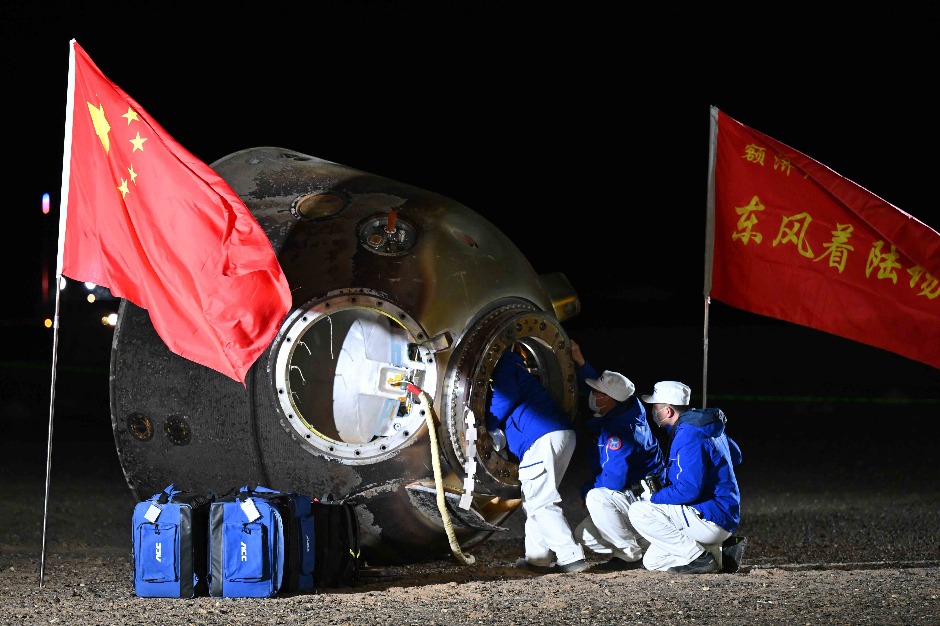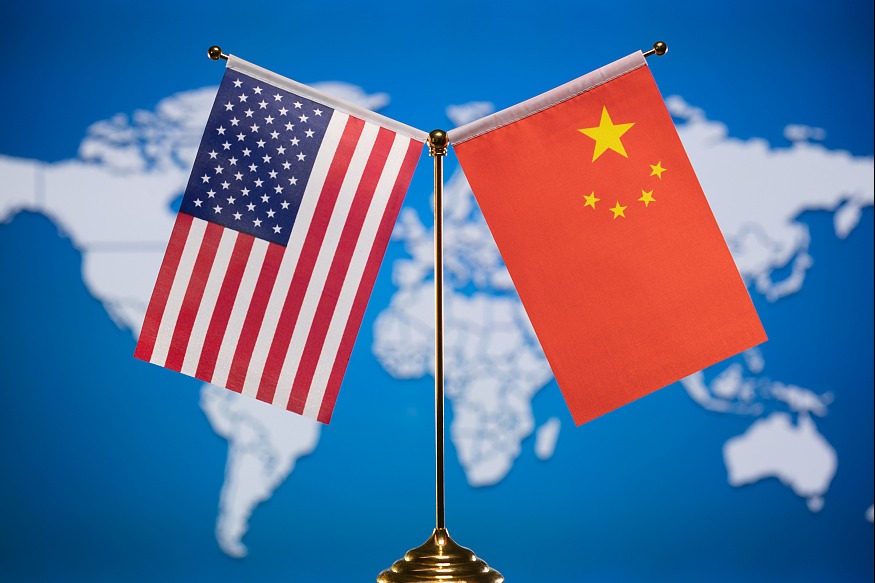Can't leave China out of AI
Beijing should not be excluded from the critical area of establishing global norms in the field, given its pivotal role in advancing global AI technology


Global deliberations on artificial intelligence safety, ethics and principles have gained significant momentum in recent days, setting the stage for stronger international AI regulations across various countries. Building on the legacy of the inaugural AI Safety Summit, hosted by the United Kingdom at Bletchley Park in November 2023, the AI Seoul Summit took place on May 21-22. One of the key achievements of this summit was the launch of the first international network of AI Safety Institutes. The UK, the United States, Australia, Canada, France, Germany, Italy, Japan, the Republic of Korea, Singapore and the European Union signed the agreement, marking an important step toward multilateral cooperation. However, one notable absence among the signatories was China.
The network's goal is to establish a multilateral consensus on research, testing and standards, thereby enhancing the interoperability of AI safety initiatives across different regions and simplifying global AI safety compliance. The summit also saw 16 global AI technology companies — including Amazon, Google, DeepMind, Inflection AI, Meta, Samsung Electronics, the Technology Innovation Institute and Zhipu AI — commit to an AI safety pledge. This pledge is aimed at building accountability frameworks and ensuring public transparency in AI safety measures.
In another significant development, on Sept 5, 57 countries and regions, including the US, the EU and the UK, jointly signed the world's first legally binding international treaty on AI. This treaty seeks to establish legal accountability for AI-related harms, ensure non-discrimination, protect privacy, and promote transparency throughout the entire lifecycle of AI systems. It also aspires to foster AI innovation in a manner aligned with contemporary socioeconomic development, while promoting global cooperation. However, many major Asian nations, including China, are yet to sign this treaty.
Some might criticize China's absence from recent AI coalitions, given its pivotal role in advancing global AI technology. However, China's absence does not imply its indifference or uncooperativeness to the AI safety agenda but its intention to distance itself from the Global West-centric efforts to set global norms, especially in the realm of emerging technologies where the global norms and rules are still evolving.
Evidence of this can be found in the 2024 World AI Conference and High-Level Meetings on Global AI Governance, hosted in Shanghai on July 4, 2024. Although the WAIC has been convened annually since 2018, this year marked the first time it focused explicitly on AI safety and governance, underscoring China's proactive stance in shaping the global AI agenda. At this event, Premier Li Qiang emphasized the importance of international cooperation, drawing nearly 1,000 foreign guests, including high-profile industry executives, civil society representatives, researchers and government officials.
Key milestones spearheaded by the Institute for AI International Governance of Tsinghua University include the Research Report on Global AI Governance and the Chinese Approach (Draft for Comments) and a new publication, Frontier AI Development and Governance, which collectively articulate China's vision for global AI governance. Additionally, the WAIC forum saw the launch of the White Paper on Major AI Application Scenarios in China and the initiative of Global Partnership for Beneficial AI. Further, the Shanghai Declaration on Global AI Governance explicitly supports the United Nations as the primary platform for AI governance and encourages stronger North-South and South-South cooperation, advocating for greater representation and voice for developing countries.
China's absence from the Western-led AI coalition highlights the importance of building bridges between established and emerging powers to create an interactive process of mutual accommodation. The 78th UN General Assembly adopted a China-led resolution on enhancing international cooperation and capacity building for AI, with over 140 countries supporting it.
Countries often align their foreign policy objectives with domestic development needs. In the US, for example, AI leadership is a key national priority. In response to President Biden's executive order, the US government has taken proactive measures to strengthen AI safety frameworks domestically. On Feb 8, US Secretary of Commerce Gina Raimondo announced the formation of the American AI Safety Institute Consortium (AISIC) under the National Institute of Standards and Technology (NIST). AISIC has brought together over 280 organizations from civil society, industry, academia and research labs to develop robust AI safety standards and policy guidelines.
Moreover, numerous US federal agencies, including the White House, the Department of Commerce, the Department of Energy, the Department of Transportation and the National Science Foundation, have taken significant steps to enhance domestic AI safety. These agencies have published over 100 technical guidance documents and policy initiatives aimed at developing AI testing platforms, model evaluation tools and risk management frameworks. These domestic efforts reflect a surge of buildup of regulations that align with the US' ambitions for global AI governance. Some notable documents include NIST's Artificial Intelligence Risk Management Framework: Generative Artificial Intelligence Profile, the US Department of State's Risk Management Profile for Artificial Intelligence and Human Rights and Department of Defence & Department of Homeland Security's Piloted New AI Tools to Identify Close Vulnerabilities in Critical Government Systems and Software. These measures demonstrate the growing recognition of AI's potential and the corresponding need to address its risks, particularly in areas of national security and public safety.
In an era where AI is increasingly shaping the global landscape, the absence of certain key players, particularly China, from major West-led AI coalitions signals the need to build a broader public forum in the governance of emerging technologies. As China continues to champion a more inclusive approach through platforms such as the Shanghai Declaration on Global AI Governance, the future of AI regulation is likely to be shaped by the balance between Global North-centric alliances and the calls for a multilateral framework under the UN. International cooperation will be crucial to ensure that AI technologies are developed responsibly, equitably, and for the benefit of all, transcending regional interests to promote a truly global standard.
In summary, AI is regarded as a key technological field that plays an important role in reshaping the economy, military capabilities and the global power structure. Both the US and China view AI as crucial for establishing technological leadership, which involves not only developing AI technologies but also formulating global rules and norms for AI. The competition between the US and China in setting AI safety rules and standards reflects the broader rivalry between a status quo power and a rising power, which has significant implications for the future of technology, governance and international relations. Today, China is no longer just a follower of international rules; it is joining the ranks of rule-makers in world politics, economics, finance, technology and security through its economic strength, technological innovation and effective governance model. Without exception, China must not be excluded from the critical area of establishing global AI norms.


Li Xuan is an assistant professor at the Global Institute for Zhejiang Merchants Development at Zhejiang University of Technology and a researcher at Zhejiang Development and Security Research Think Tank Alliance, and she has served as a policy consultant for the OECD. Li Xing is a leading scholar and professor at the Guangdong Institute for International Strategies at Guangdong University of Foreign Studies and an adjunct professor at Aalborg University, Kingdom of Denmark. The authors contributed this article to China Watch, a think tank powered by China Daily. The views do not necessarily reflect those of China Daily.
Contact the editor at [email protected].
































